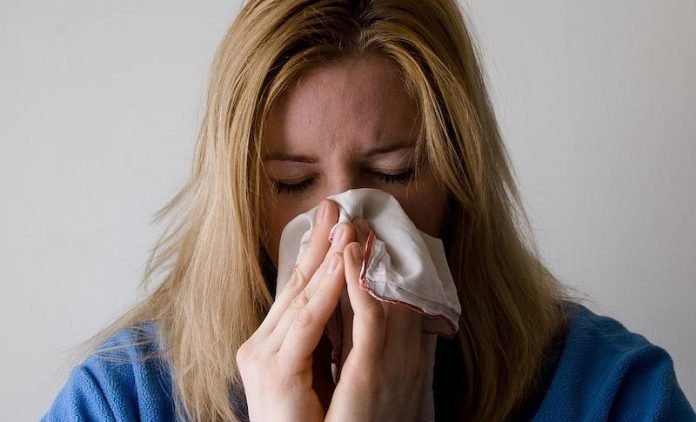
If you have an allergy, your immune system reacts to something that doesn’t bother most other people.
People with seasonal allergies (also called hay fever or allergic rhinitis) react to pollen from plants.
Symptoms may include sneezing, coughing, a runny or stuffy nose, and itching in the eyes, nose, mouth, and throat.
This page discusses complementary health approaches for allergic rhinitis. Another page on the National Center for Complementary and Integrative Health (NCCIH) website has information on complementary approaches for asthma.
What the Science Says
Complementary approaches can be classified by their primary therapeutic input (how the therapy is taken in or delivered), which may be:
Nutritional (e.g., special diets, dietary supplements, herbs, probiotics, and microbial-based therapies).
Psychological (e.g., meditation, hypnosis, music therapies, relaxation therapies).
Physical (e.g., acupuncture, massage, spinal manipulation).
Combinations such as psychological and physical (e.g., yoga, tai chi, dance therapies, some forms of art therapy) or psychological and nutritional (e.g., mindful eating).
Nutritional approaches include what NCCIH previously categorized as natural products, whereas psychological and/or physical approaches include what was referred to as mind and body practices.
Many complementary health approaches have been studied for allergic rhinitis. There’s some evidence that a few may be helpful.
Psychological and Physical Approaches
A 2015 evaluation of 13 studies of acupuncture for allergic rhinitis, involving a total of 2,365 participants, found evidence that this approach may be helpful.
Rinsing the sinuses with a neti pot (a device that comes from the Ayurvedic tradition) or with other devices, such as nebulizers or spray, pump, or squirt bottles, may be a useful addition to conventional treatment for allergic rhinitis.
Nutritional Approaches
A 2007 evaluation of six studies of the herb butterbur for allergic rhinitis, involving a total of 720 participants, indicated that butterbur may be helpful.
Researchers have been investigating probiotics (live microorganisms that may have health benefits) for diseases of the immune system, including allergies.
Although some studies have had promising results, the overall evidence on probiotics and allergic rhinitis is inconsistent. It’s possible that some types of probiotics might be helpful but that others are not.
It’s been thought that eating honey might help to relieve pollen allergies because honey contains small amounts of pollen and might help people build up a tolerance to it.
Another possibility is that honey could act as an antihistamine or anti-inflammatory agent. Only a few studies have examined the effects of honey in people with seasonal allergies, and their results have been inconsistent.
Many other nutritional approaches have been studied for allergic rhinitis, including astragalus, capsaicin, grape seed extract, omega-3 fatty acids, Pycnogenol (French maritime pine bark extract), quercetin, spirulina, stinging nettle, and an herb used in Ayurvedic medicine called tinospora or guduchi.
In all instances, the evidence is either inconsistent or too limited to show whether these products are helpful.
If you care about allergy, please read studies about new way to stop peanut allergy, and allergy and COVID-19: What you need to know
For more information about allergy, please see recent studies that allergy history linked to higher risk of high blood pressure, and results showing food allergy and intolerance: 5 common myths explained.



